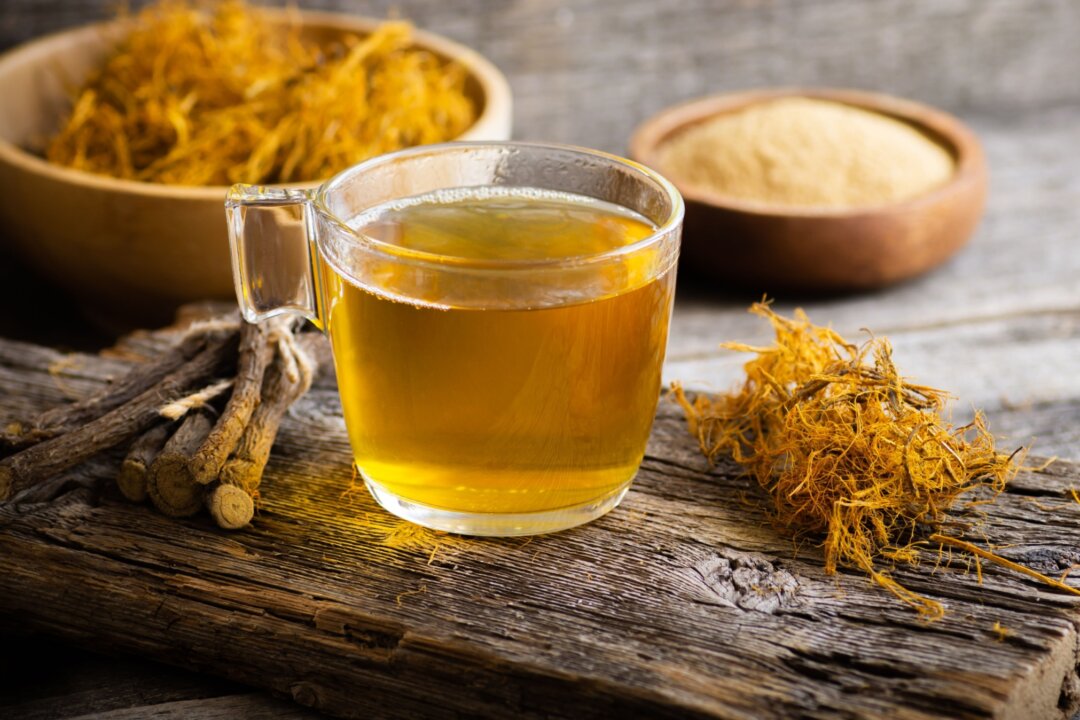With a sweet taste and potent properties, licorice root is a strong herbal ally for digestion. In traditional Chinese medicine (TCM), licorice root is used for balancing qi—life force—specifically in the spleen, which is considered to be vital for the whole body and the digestive system. It is broadly regarded in Eastern and Western medicine for its specific anti-inflammatory gastrointestinal uses in liver diseases and cancer, heartburn, ulcers, and stomach pain.
Inflammation is part of the natural healing process in acute illnesses and injuries, but ongoing systemic inflammation can be the result of lifestyle factors like diet, viruses, aging, and toxins. The authors of the 2022 review note that IBD and colorectal cancer rates are growing and contribute to a large number of deaths annually, creating a need for more therapeutic solutions. IBD patients also face a higher risk of cancer.

Twelve licorice flavonoids have been found to inhibit cancer growth by causing apoptosis, or cell death. The cellular-level actions of licorice root may prevent tissue damage in autoimmune diseases and other inflammatory disorders, the review explained. The review went on to highlight another licorice compound called isoliquiritigenin, which halts cancer using a combination of mechanisms including apoptosis, as well as autophagy.
Autophagy is a cellular process that recycles cellular debris for cellular efficiency. Isoliquiritigenin also halts the growth of new blood vessels, called anti-an.























